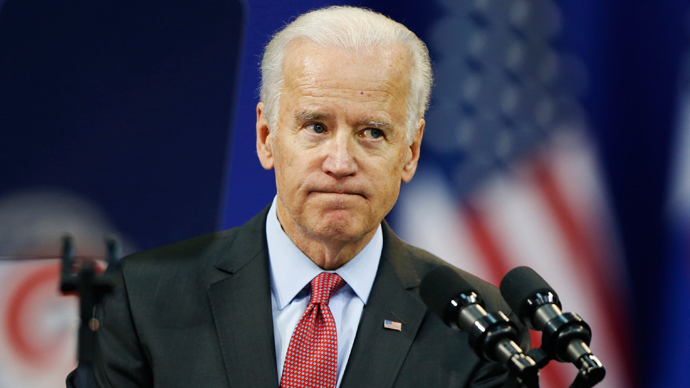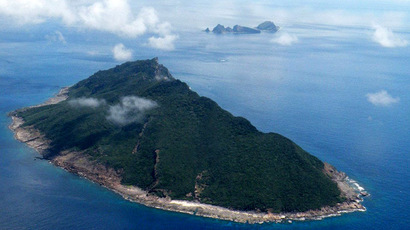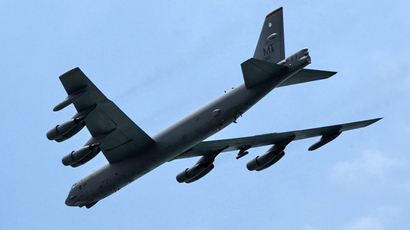US refuses to recognize new Chinese air defense zone

Nearing the tail end of his Asian tour on Friday, Vice President Joe Biden set in stone the United States’ stance on a budding conflict there regarding ownership of airspace in the East China Sea.
Amid growing tensions in the region, Mr. Biden said during a stop in Seoul, South Korea this week that the US wholeheartedly rejects China’s self-declared right to control airspace above the Diaoyu islands — a small section of the sea off Taiwan’s northern coast which has recently attracted international tension due to a row that’s erupted between regional powers.
Speaking at Yonsei University on Friday, Biden said, according to Reuters, "I was absolutely clear on behalf of my president: We do not recognize the zone. It will have no effect on American operations. None. Zero.”
While making other stops in the area earlier this week, Biden met with leadership in Japan, where officials have long claimed the right to the region that China insists is within their new air defense zone.
"This action has raised regional tensions and increased the risk of accidents and miscalculation," the vice president said during a Tuesday press conference there, adding that the conflict “underscores the need for crisis management mechanisms and effective channels of communication between China and Japan to reduce the risk of escalation."
Biden was in Beijing only hours later and told a crowd on Wednesday that "China's recent and sudden announcement of the establishment of a new air defense identification zone has, to state the obvious, caused significant apprehension in the region.” His remarks attracted a firestorm of criticism form the way of the Chinese government and media, and when Biden exited a marathon meeting with President Xi Jinping in the capital after he reportedly appeared “solemn” and “weary-sounding,” and refrained from commenting explicitly on the airspace dispute.
Once in Seoul, however, the vice president became vocal about the issue and rejected China’s claims while warning "The possibility of miscalculation, a mistake, is real.”
"The entire region will be more stable and more secure if the leading democracies — Japan, South Korea and the United States — are able to improve their relations and cooperation with one another," Biden said.
Since China began ramping up their claims late last month, other Asian nations and the United States in particular have expressed interest in the dispute. The US deployed a fleet of B-52 bombers over the Diaoyu islands without giving notice — directly defying China’s orders — then sent an American surveillance aircraft to neighboring Japan.
Elsewhere during the vice president’s stint in Seoul this week, he offered harsh words for North Korean President Kim Jong Un and warned that neither the US nor the world will accept or tolerate any efforts from him to develop nuclear weapons.
"We are prepared to go back to the six-party talks when North Korea demonstrates its full commitment to complete, verifiable and irreversible denuclearization,” Vice President Biden said.














